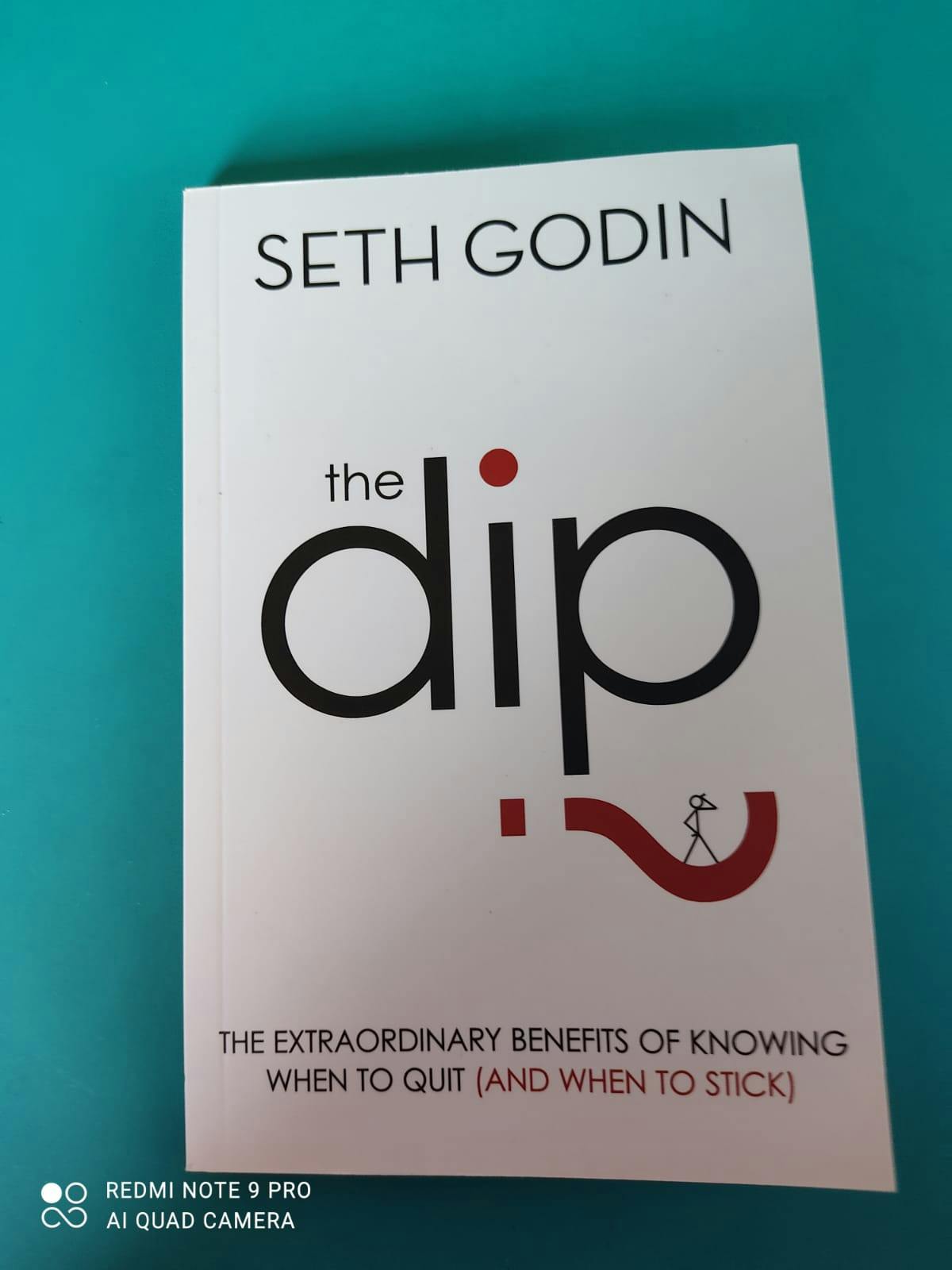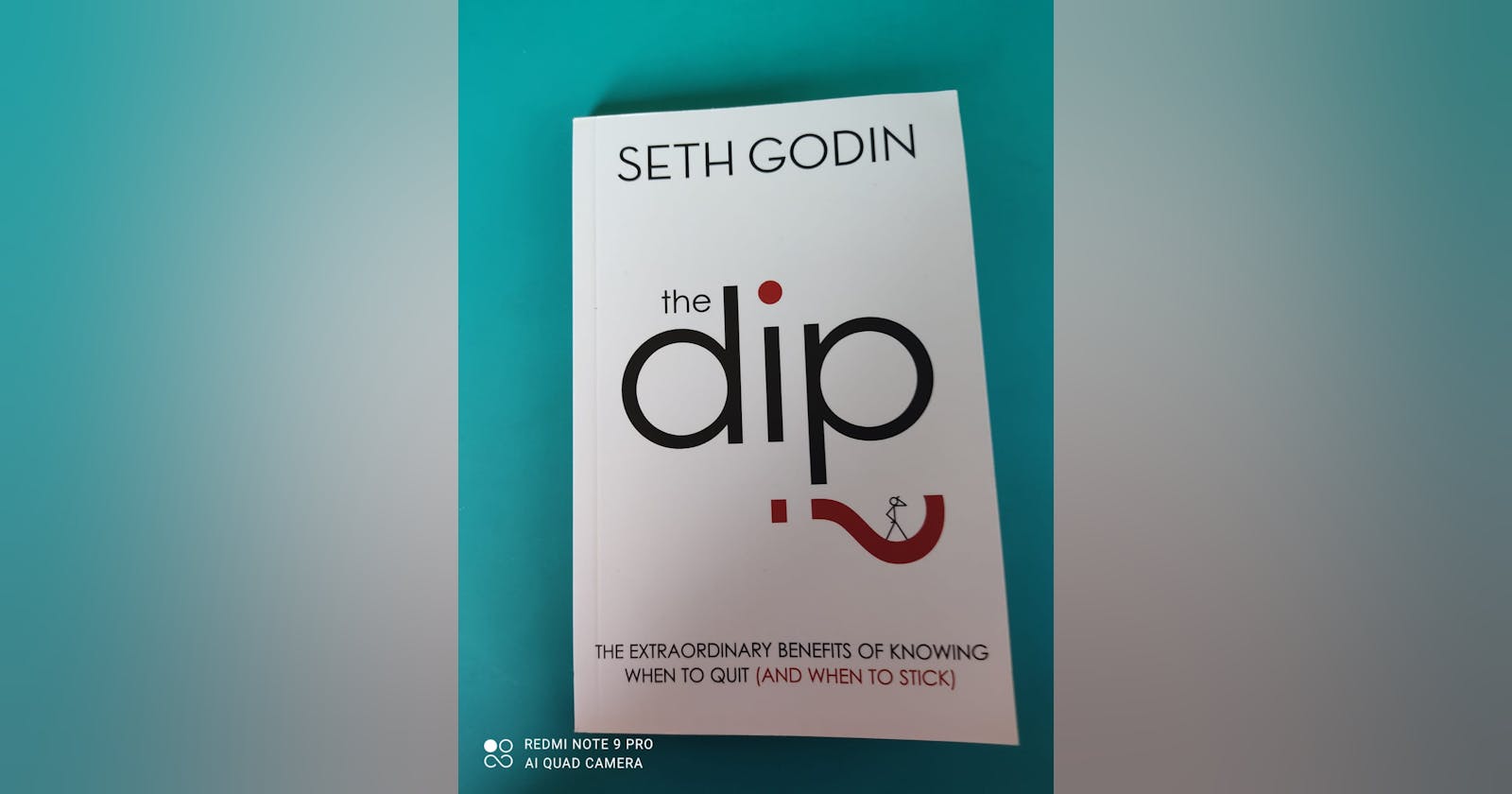"Never Give up" is age-old cliche advice. Ever heard about the "Sunk Cost Fallacy?"
Seth Godin through his short book titled The Dip. Addresses what is less talked about When to Quit? When to stick through something?

Core Ideas
Strive to be the best at what you do. When you visit a doctor. You want to reach out to the best doctor. Companies want to hire the best hires. You purchase products only from the best brands. Everyone out there is looking out for the best.
When you start something. Initial days might feel exciting. This is the time before the Dip. As you progress ahead. There are days when you make no progress. It is tough to endure. The easy choice is to quit. This phase is called the Dip. The dip is the long slog between starting and mastery.
To get through the other side of Dip and be great at anything. You need to see through the dip and endure. Only a handful of people are able to get to the other side. And, those are the ones who are not mediocre. The majority is mediocre.
Before deciding to get into anything new. Evaluate by answering Will I endure through the dip? What will it cost? If the answer is Yes. Go ahead. If the answer is No. Quit before the start.
Cul-de-Sac (a French word for "dead end"). It's a situation where you work and work and you work and nothing much changes.
Don't quit seeing the short-term pains. It hurts in the short term. In the larger scheme of things. In the long term is it adding value?
There are two types of quitting. Strategic quitting and reactive quitting. Reactive quitting and serial quitting are the bane of those that strive(and fail) to get what they want. They quit when it's painful and stick when they can't be bothered to quit.
If it's worth doing, there's probably a Dip.
Quitting when you hit the dip is a bad idea. If the journey you started was worth doing, then quitting when you hit the Dip just wastes the time you've already invested.
Don't quit and seek change when you hit an obstacle. The time to look for a new job is when you don't need one. The time to switch jobs is before it feels comfortable.
At places, the book might seem to be repetitive. I like it the way it is. Repetition helps in making the advice stick. The perspective might not fit in every other scenario. As it is challenging to predict the future prospects of something. Wherever it fits it'll save time with the decision-making.
And, will make you re-think am ready to survive the dip or willing to quit before the start?
